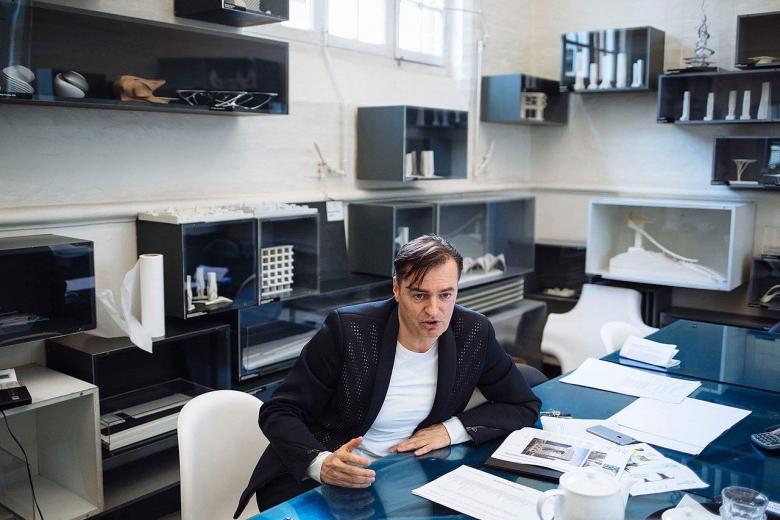Patrik Schumacher in the News
Patrik Schumacher in 2017 (Photo via Wikimedia Commons)
The principal of Zaha Hadid Architects entered the news this week as a court case over the late Zaha Hadid's estate was decided, and Schumacher's pro-growth comments struck a nerve with other architects.
The UK media, including Oliver Wainwright at the Guardian on November 21, reported on the conclusion of a court case over legal claims to Zaha Hadid's estate that has been unfolding since the famed architect died in March 2016. Three issues were finalized:
- Hadid's assets will go mostly to the charitable Zaha Hadid Foundation to award scholarships and establish a museum;
- Hadid's shares in ZHA will be transferred to a tax-efficient employee benefit trust chaired by Schumacher;
- Schumacher was denied veto power over the company's board of trustees, which also includes artist Brian Clarke, Rana Hadid (Zaha's niece), and developer Peter Palumbo.
The last was decided in a hearing held remotely due to the coronavirus pandemic. "The other three executors," per the Guardian, "strenuously resisted [Schumacher's contested veto power], alleging that Schumacher had a track record of abusing veto powers, had failed to distinguish conflicts of interest and had a 'lack of commitment to basic principles of corporate governance.'"
The presiding judge who ruled against Schumacher's request for veto powers concluded that Schumacher "would be in a very difficult position with regard to conflicts of interest" if he were given such powers. He is also quoted in the article as describing the four-year disagreement as a "toxic dispute" whose legal costs will be taken from Hadid’s estate.
A few days earlier, on November 17, Schumacher spoke in a panel discussion during a virtual conference organized by the Council on Tall Buildings and Urban Habitat (CTBUH). Schumacher acknowledged the immensity of the climate crisis but appeared to prioritize economic growth: "We need to allow prosperity and progress to continue, and that will also bring the resources to overcome [the climate crisis] through investment, science and new technology," as quoted at the Architects' Journal. "That must be built on continued growth and cannot be built on a panicked shrinking of the economy, [which would] lead to massive regressions and political upheavals." He also spoke about adding density to London, echoing his comments at the World Architecture Festival (WAF) in 2016, when he promoted the idea of privatizing all public spaces in the city, potentially creating a new city atop historic Hyde Park.
Just as his 2016 comments sparked a backlash, architects focused on dealing with the climate crisis took issue with his recent pro-growth position, namely Architects Declare (AD), a network of UK architectural practices founded in 2019 "to create architecture and urbanism that has a more positive impact on the world around us." (ZHA was one of the initial signatories to the network.) AD issued a lengthy statement today, saying Schumacher's arguments "are fundamentally in conflict with the Architects Declare commitment to 'advocate for faster change in our industry towards regenerative practices,'" and arguing for "a much more sophisticated discussion about growth that distinguishes between qualitative and quantitative growth."
Normally AD does not call out individual practices for their words or actions, "recognizing that we all struggle sometimes to do what is necessary," but they see Schumacher's statements as "undermining the effectiveness and credibility of AD." In turn, AD is asking for "those practices" — clearly referring to an unnamed ZHA — "to either join the wave of positive change or have the integrity to withdraw."
